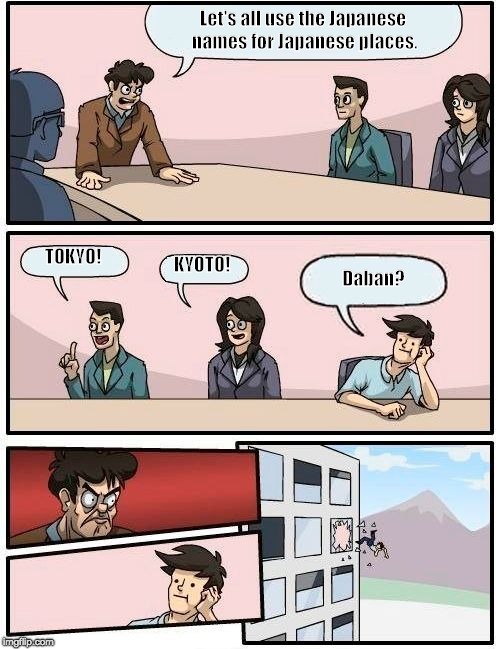The Torture of Japanese via Chinese
This week my wife and I have been planning a short family vacation to Japan. We’ll be hanging out in Fukuoka for a bit in August.
I majored in Japanese long ago, spoke pretty fluently, and was even reading Japanese literature. Now, after 18 years in China, my Japanese is rusty, but I do still speak it. Reading is much harder than it used to be, because all that Chinese in my brain wants to interpret the Japanese characters I see as Chinese. The more kana mixed in with the Japanese, the easier and more natural it is for me to read kanji as Japanese.
Anyway, what I’m finding much more difficult than reading Japanese is listening to it… in Chinese. The Chinese, of course, read Japanese kanji as if they were Chinese hanzi. In some cases, the Japanese words, pronounced as Chinese, become full-fledged loanwords in Chinese. No surprise, and no big deal. You get used to hearing Tokyo (東京) pronounced as “Dōngjīng,” and Kyoto (京都) as “Jīngdū,” etc.
But what you don’t get used to is hearing everything Japanese pronounced as Chinese. While we’re planning the trip, my wife is constantly dropping the Chinese names of all kinds of random Japanese places, and that’s something my poor brain can’t handle. On the one hand, they’re Japanese places, and I speak Japanese, so I want to know the Japanese names of the places we’re talking about. But on the other hand, my wife isn’t just going to learn Japanese for this trip, and she speaks to me mostly in Chinese, so of course she’s going to use the Chinese names. So my brain has to keep trying to jump through this series of hoops:
Chinese pronunciation → Chinese hanzi → Japanese kanji → Japanese name
(Sometimes I can get as far as step 2, but rarely can I get to step 4.)
Brain melting…


Haha:) Nihao from Dongjing! Hope you’ll have a good trip to Jiuzhou?, I mean Kyushu. I’m struggling to translate Chinese names to Japanese pronunciation when I listen to CNN etc in English. – something like “Shi, jin, pin? … Ah, Shuu Kinpei!”
I’m getting used to it, MIL is also mainland Chinese.
Shinbashi = Xinqiao
It’s actually helping my Chinese though!
I find the names of people particularly difficult, and I’m a native Chinese speaker, but of course I also speak Japanese.
I’m always having to ask Chinese to write the characters for me because, like you, aside from a few well-known place names, I usually have no idea where they are talking about.
funny cause for me the more kanji in a sentence the easier for me to read.
Those all kana sentences are a nightmare, slowly acclimating though
hope you enjoy your time there….
This really gives me a headache too! I once travelled around japan with two Taiwanese friends and had to get used to this for place names, especially challenging was being somewhere with Chinese speaking and non Chinese speaking people at once and having to switch between kinkakuji and jingesi and also golden temple with some English speakers.
Aside from place names, it got annoying when my Taiwanese friends who don’t speak Japanese used the Chinese pronunciations of kanji that you often see out and about in japan such as 割引 or 無料 or 特急.